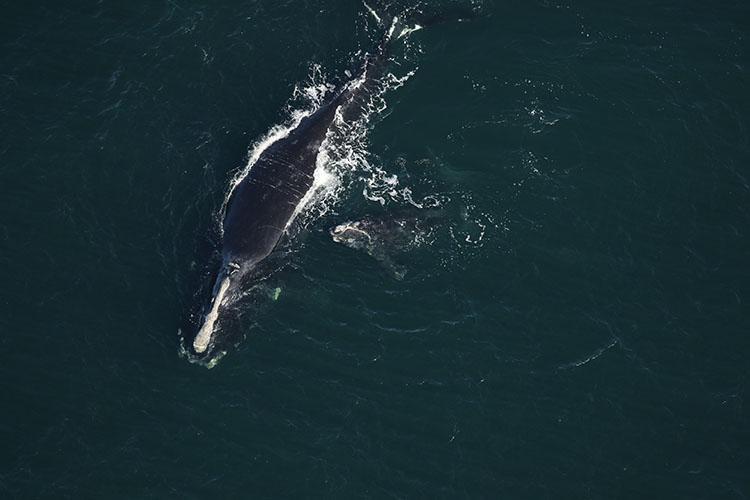
Caption
North Atlantic right whale #3230 ‘Infinity’ and calf are photographed from when they were first sighted off Amelia Island, Fla., on Jan. 17, 2021. The calf was later killed by a 54-foot fishing boat, and Infinity was spotted with injuries from a boat strike.
Credit: Florida Fish and Wildlife Conservation Commission, NOAA permit #20556-01

